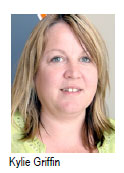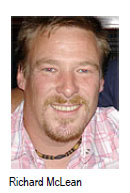Mental illness
Research reveals Australians with mental illness have to choose between paying bills and healthcare
New research released today by national mental health charity SANE Australia has found people with a mental illness are often forced to choose between medical treatment and putting food on the table.
The key findings of SANE Research Bulletin 9: Money and Mental Illness are:
. 38% of respondents have an annual income of less than $20,000
. 54% of respondents often could not afford treatments recommended by their doctor
. 96% had to choose at times between healthcare and essentials such as food.
SANEs Executive Director Barbara Hocking says of the findings, we now have the appallingsituation where people with mental illness are being forced to make really unenviable decisions.Why should people who are trying to cope with the distressing symptoms of mental illness alsohave to go without food to pay for essential treatment, or remain unwell to put food on thetable?
SANE Research Bulletin 9: Money and Mental Illness also found that 17% spend more than$100 a month on medication and yet 32% were not registered with Medicare Safety Net. Debt isa major issue with more than half of respondents (53%) relying on credit cards to help endsmeet, and 29% having been contacted by debt collectors in the past year.
A group of people with mental illness are now at risk of becoming an underclass. Governmenturgently needs to do more to ensure that all people with mental illness are able to access thetreatments they need, says Ms Hocking, whether this is for psychiatric care or for the otherchronic conditions we know they experience at much higher rates than the general population.Healthcare must be made affordable for people on low incomes via targeted financial support.SANE also encourages the government to support financial literacy and counselling programsfor people with a mental illness and register all people on low incomes with Medicare Safety Netas a matter of course.
The survey also found one-third of respondents (31%) were smokers compared with 18% ofthe general population. Almost half of smokers said they could not afford nicotine replacementtherapy (NRT), the most effective aid to quitting, even though they wanted to stop smoking.Ms Hocking says, now more than ever, with the proposed increased costs of cigarettes,subsidised NRT is urgently needed for people with mental illness as well as otherdisadvantaged, low income groups to enable them to live a healthier, smoke-free life.
SANE Research Bulletin 9: Money and Mental Illness, can be downloaded from the Researcharea of the SANE website at www.sane.org
Kylies story
I don't think society understands the insidious cycle created by having mental illness and living on thelowest of incomes. The stress generated by trying to make ends meet impacts heavily on bothsymptoms and quality of life. Every day is spent working out what bill must be paid and which canwait. It is mentally draining and all consuming at times, exacerbating symptoms.
For me, low income means being acutely aware of what is in other people shopping trolleys. I can bein awe when you see trolleys stacked with meat and brand name products. Luxury items to us. Wecan't afford what we need let alone what we want and I am aware of constantly having to say no tomy children.
People may think that those on the poverty line get cheap scripts or health care but if it is viewed as itmust be, as a percentage of a miniscule income, then it is clear it impacts on budgets significantly.How would people feel if this report identified people with cancer were having to choose food overhealth care and treatment? Living this way is not acceptable for anyone, even the mentally ill.Kylie Griffin was diagnosed with schizophrenia at 28. Kylie is a mother of two and works as a mentalhealth consumer advocate and lives in West Wodonga.
Richards story
My illness means periodically managing a roller coaster of paranoia and mood swings. This can bechallenging enough for people like me, without added financial stress and feelings of hopelessness.When I see my psychiatrist it costs $185.00 per half hour simply to oversee a change inmedication. Part of this is later refunded but it strikes me as very difficult for vulnerable people tocome up with large amounts of cash at the very same time help is needed.
A high percentage of people with a mental illness also smoke and sadly, I do too. I would like to seenicotine replacement therapy made accessible for those wishing to use it to have a smoke free life.Today I looked up hypnotherapy to help me give up smoking, and was quoted $495.00.
I think its quite a paradox that people who are often on a low income need the highest costingtreatment for diagnosis and counselling. For many like me, private health insurance is an impossibleluxury.
I have moved 16 times in the last ten years. I am limited by what I can afford and have sometimeslived in unsuitable accommodation most often share houses. At one point, during one of my darkertimes, I couldn't afford rent and it was a friend who bailed me out. My housing options are alsoseverely restricted because I have a pet dog, Steinberg, who gives me great company. My dreamsof owning a home have all but vanished due to my fluctuating illness, yet I am still hopeful.
I supplement my pension by working in mental health advocacy and creative endeavours but its stilla struggle. In the past I have relied on credit cards to get by and previously been contacted by debtcollectors. Over the years I have relied heavily on family for assistance financially, and also foraccommodation. Counselling in conjunction with financial planning would be an eye opener to manypeople whose illness affects behaviour and spending.
Richard McLean was diagnosed with schizophrenia at 22. He is an author, artist, musician andmental health advocate living in Melbourne.
SANE Australia A national charity working for a better life for people affected by mental illness through education, research, and campaigning for improved services and attitudes. SANE operates Australias only national Freecall Helpline providing information and advice about symptoms, treatment and support services for mental illness: 1800 18 SANE (7263).
MORE
- Dr Linda Swan World Health Day: Depression:...
- Helping To Change Perception Of Suicide And...
- Am I Worried, or is this Anxiety?
- Jack Heath Depression in Australian Workplaces...
- The Importance Of Getting Help For Your Fears...
- Managing Your Fearful And Obsessive Thoughts
- Ending Your Life Is Not The Answer To Your...
- When Your Friends Do Not Understand Your Mental...
- How To Find A Good Mental Health Counselor
- Exercise Effective Remedy For Depression
- Addicted To Being Busy



